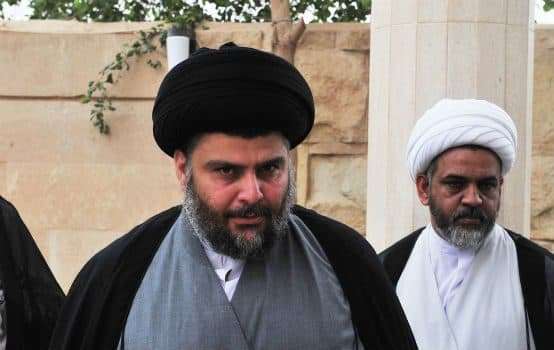
Iraq’s parliamentary elections earlier this week delivered an unexpected shock to international observers when the Sairoon (Marching Forward) coalition led by the Shiite cleric Muqtada al-Sadr won the most seats. The success of Sadr and his communist allies represent a rebuke to the incumbent government and reflected the broad dissatisfaction of Iraqis with their political class. Loulouwa al-Rachid of the Carnegie Middle East Center has dubbed it the “triumph of the marginalized.” Hadi al-Amiri’s Fatah Alliance, which is linked to the Popular Mobilization Forces and aligned with Iran, came in second. The Nasr (Victory) coalition, headed by current prime minister Haider al-Abadi, trailed in third place.
The election was marked by record low turnout with less than 45 percent of eligible voters casting ballots, which in itself showed the extent of popular disaffection with Iraq’s current leaders. Sadr’s surprise win was a timely reminder that the United States still doesn’t understand very much about Iraqi politics even after 15 years, and puts the lie to the simplistic propaganda claim that Iraq is under Iranian “control.”
Sadr is known to Americans mainly as an adversary during the occupation of Iraq. His Mahdi Army fought against the U.S. and its allies for several years, and his opposition to the occupation was rooted in a distinctive Iraqi nationalism. It was that same nationalism that allowed him and his coalition to tap into resentment against Iran. As a result, Iraq may now form a government that isn’t defined as much by sectarianism as it has been in the past. Sadr has also cultivated closer ties to both Saudi Arabia and the United Arab Emirates in recent years, so it is likely that any government that includes his coalition will continue improving relations with these governments.
Sadr’s message was straightforwardly populist and nationalist. Frida Ghitis describes it:
Sadr built his Sairoon coalition—in Arabic, it means “marching forward”—with the Iraqi Communist Party and secular activists. He railed against the corrupt practices of Cabinet members doling out jobs and contracts on the basis of sect and vowed to push for a technocratic government working single-mindedly for Iraq’s interests, not those of the other candidates’ foreign sponsors. In a sharp break with Iraq’s other Shiites—and a very worrisome sign for Iran—Sadr criticized Tehran’s role in Syria’s civil war and its continuing efforts to exert its influence in Iraq.
Considering the extent of foreign meddling in Iraq over the last two decades, it is natural that there would be a significant constituency for a message that emphasizes rejection of such interference.
Since Sairoon has the most seats, that puts Sadr in the position of being a potential kingmaker. While he didn’t run for office and won’t serve in the next government, he will likely have significant influence over that government’s composition. Krishnadev Calamur explains why that could also make it more difficult to form a government:
But the people Sadr excluded from his post may be even more significant, and they include the pro-Iran Shia alliance that finished second in the election, as well as a major Kurdish party. “You can’t really count on him through this government-formation process,” Knights said of Sadr. “He’s trying to dictate the geometry of this government. He doesn’t want certain people to be in it, and that’s going to make it harder to get to 165 seats,” the number needed for a majority in the 329-seat parliament.
It remains to be seen what shape the new Iraqi government will take, but it is likely to be one that both Iran and the U.S. find less amenable to their own interference in Iraqi affairs. That may not be received as good news in Washington or Tehran, but it seems like a very healthy and overdue improvement in Iraqi politics.
Daniel Larison is a senior editor at TAC, where he also keeps a solo blog. He has been published in the New York Times Book Review, Dallas Morning News, Orthodox Life, Front Porch Republic, The American Scene, and Culture11, and is a columnist for The Week. He holds a Ph.D. in history from the University of Chicago, and resides in Dallas. Follow him on Twitter.
Sourse: theamericanconservative.com






